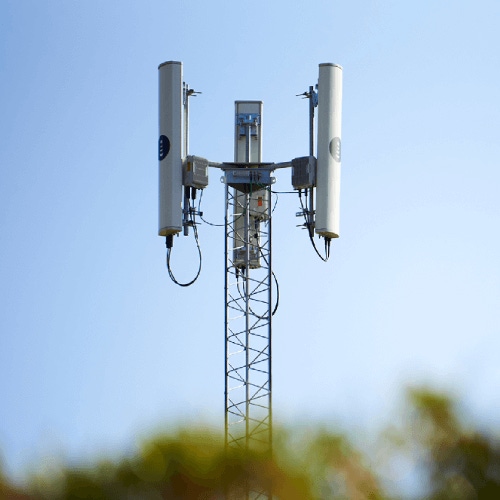
Dish Network this week raised roughly $2 billion for its 5G network, cash that should keep the company's network buildout efforts afloat through at least part of 2023.
"We are glad the 5G network deployment segment secured financing in this environment," wrote the financial analysts at Raymond James in a note to investors this week. "We will continue to follow Dish's funding plans."
The analysts noted that the interest rate on the cash – 11.75% – is slightly higher than the 11% rate they had expected. But they argued that the money will likely help Dish reach its next major network-buildout goal: covering 70% of the US population with 5G by June 2023.
Dish officials had cautioned in August that the company would need more money to continue constructing its 5G network.
Next steps
Dish's 5G efforts are the result of a 2019 agreement with T-Mobile and the US Department of Justice positioning Dish to become the nation's fourth nationwide 5G provider. The agreement included several specific 5G coverage goals, and in 2020, the FCC issued an order (PDF) that modified and extended some of Dish's buildout deadlines into 2025. Dish has long estimated that its entire 5G network buildout will cost a total of $10 billion.
Figure 1:  (Source: Dish)
(Source: Dish)
According to the financial analysts at New Street Research, Dish will need to broadcast its 5G signal from atop a total of 35,000 cell towers to meet all the FCC's network coverage requirements. Dish has already activated 10,000 cell towers, so it will need to add 25,000 sites by the middle of 2025.
"The 10,000 towers Dish has already built cost the company $2 billion," the New Street analysts wrote in a recent note to investors. "To build the remaining 25,000 sites at $200,000 per site, the company will need to spend a further $5 billion in capex [capital expenses]."
That means Dish will need roughly $3 billion more at some point to complete the construction of its 5G network and meet the FCC's coverage requirements.
Raising additional cash
Dish has options in its pursuit of more cash. For example, the company is considering selling a minority stake in its Boost Mobile wireless retail business to Charlie Ergen's CONX, a special purpose acquisition company (SPAC). Ergen is Dish's founder.
CONX shareholders recently voted to give the two companies more time to hammer out an agreement. Analysts have given that deal a 50% chance of happening.
Separately, Dish has also floated the prospect of merging its satellite TV business with the DirecTV satellite TV business. The analysts at Raymond James believe such a transaction could occur sometime after the current midterm elections but before the next presidential election in 2024. That timeframe offers the best chance of receiving regulatory approval, they said.
However, analysts are still taking a cautious stance on Dish because of obstacles it faces. Dish recently delayed the launch of its Boost Infinite postpaid service – the latest in a series of launch delays.
"The story remains intact as we view Dish as a 'concept stock'," wrote the financial analysts at Cowen in a recent note to investors. "2023 is about 5G execution."
Related posts:
— Mike Dano, Editorial Director, 5G & Mobile Strategies, Light Reading | @mikeddano
About the Author(s)
You May Also Like




_International_Software_Products.jpeg?width=300&auto=webp&quality=80&disable=upscale)







